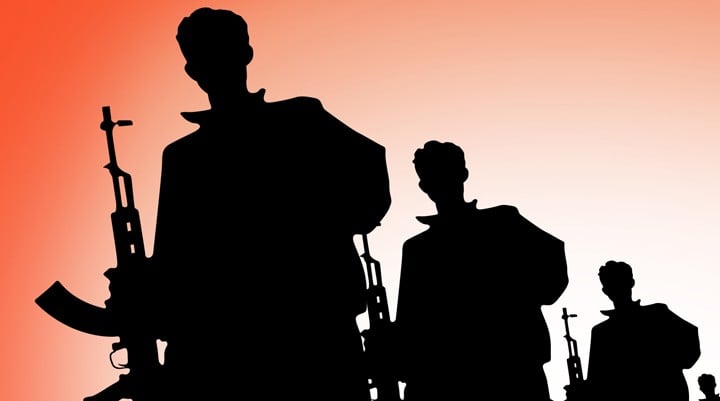
It is time to listen carefully to the fringe voices that are trying to understand the phenomenon in its broader scope

When Trump says he wants to save America from the world, he not only means more jobs; he also means to save the country from the spectre of terrorism. Immigrants, illegal, Muslim, may well all be ‘terrorists’. But isn’t that what his predecessors were attempting to do, especially after the mother of terror events, 9/11, happened on the American soil.
They responded with a "war on terror" because terrorism too was a war that could only be responded in kind. Thus, the last fifteen years saw wars, near wars and incidents of bloody violence leading to deaths to the tune of many multiples of the 4000 lives lost following the crash of the twin towers.
A country like Pakistan experienced such extreme violence and death that it finds itself in a state of virtual war, engaging the country’s military in operations against its own citizens.
Some odd lunatic fringe inflicting mindless deaths and creating frenzy is how we understand terrorism in today’s world. Or is this how we are made to understand it by the powerful mainstream that includes the media. In Chomskian terms, terrorism is something ‘they’ are doing to ‘us’.
Thus, all energies are spent on stopping this hydra-headed problem that refuses to go away. Full-fledged wars dependent on carpet bombings and drones, not always retaliatory but preemptive in most cases, have been unable to bring an end to the problem that’s branded as the only form of ‘terrorism’.
Perhaps, it is time to listen more carefully to the fringe voices that are trying to understand the phenomenon in its broader scope -- trying to locate its roots in colonialism, in atomic bombings, in pepping up dictatorships, in violence that bred it, in history, in short in pitching one kind of terrorism against the other.
Everything that is being done anywhere in response to one particular kind of ‘terrorism’ -- by abdicating due process and resorting to drone warfare, military courts, disappearing people, torture, extrajudicial killings -- is therefore put under question.
Read also: The nation state is back
Jean Baudrillard, writing soon after 9/11, sees immoral terrorism as a logical response to the immoral globalisation. The hegemonic global monopoly of power, he writes, gives rise "to a blowback of proportionate violence".
This world is different from the Cold War world where the confrontation between the two powers "maintained the balance of terror". It’s interesting how the word terror was neutered in normal international relations lingo. The Evil that resided in one particular state was now let loose and, in the words of Baudrillard, "it was as though Evil regained an invisible autonomy, henceforward developing exponentially".
Terrorism is indeed hard to define and among the many academics who are trying to work on this Naom Chomsky stands out, if only because he calls out his own country, the hegemonic power, as a sponsor of terrorism. And he does so, he claims, going by the official definition of terrorism used by the US law and the US Army manuals.
The so-called global war on terrorism begins by identifying people and making lists of terrorists. Again Chomsky has a field day exposing the futility of this approach. Nelson Mandela was on the US terrorist list till quite late because Ronald Reagan, a supporter of apartheid regime, had declared Mandela’s African National Congress (ANC) as one of the most notorious terrorist groups. Saddam Hussain was a ‘terrorist’ when he was taken off in 1982, again by Reagan, and the empty slot refilled with Cuba. Then came a time again when Saddam had to be eliminated. And finally President Obama went to Cuba to mend fences, as they say.
Read also: A country of anti-immigrants
The sources of much of the violence that we see today lie in the colonisation of the world by the West, and then in the redrawing of maps and creation of artificial states as part of their neo-colonial agenda. It is in this backdrop that we should see the Israel-Palestine conflict that fostered such direct and indirect violence. The jihadi movements were of course given life in the Cold War context by the US in particular.
But what is it that essentially defines the more recent violent attacks against the established global system. In simple words, how does one explain the suicide bombings. Baudrillard’s conclusion is important. The death of these bombers, he says, "is an absolute weapon against a system that operates on the basis of the exclusion of death, a system whose ideal is an ideal of zero deaths". No means of deterrence and destruction, no amount of bombings, no capital punishments and military courts, no anti-terror legislation matters to these people who are "as eager to die" as the others want to live.
But this is a weapon that the Palestinians had also opted for some time, and ultimately failed. The persistence of this current variety of suicide bombings owes itself to something else. Baudrillard thinks this is because they [the bombers] are making use of all "weapons of the dominant power" including money and stock-market speculation, computer technology and aeronautics, spectacle and the media networks. "They have assimilated everything of modernity and globalism, without changing their goal, which is to destroy that power."
Terrorism is latent in the current global system, these fringe voices seem to be telling us. It flows in all directions, as much in the form of drone warfare as in suicide bombings. The system needs to become more humane and equitable before we can see a terror-free world.